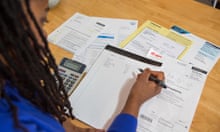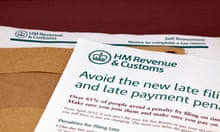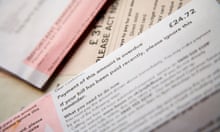Credit card borrowing is rising at its fastest annual rate in 17 years, the Bank of England said on Tuesday, with analysts warning a recession looks increasingly likely as growing numbers of households go into debt to make ends meet.
The annual growth rate for credit card borrowing hit 11.6% in April – the highest figure since November 2005. The rate for all consumer credit increased to 5.7% in April, from 5.2% in March, rising faster than at any time since just before the pandemic.
The latest data shows a “divided nation”, analysts said, with millions borrowing money to buy food while others splashed out on treats and luxuries using their credit cards. The Money Advice Trust, the charity that runs National Debtline, said the Bank of England’s consumer credit figures were “an ominous sign of the mounting pressure on household finances”.
It added: “Using credit to cover essential costs like food and energy is often a sure sign of financial difficulty.”
“Prices are rising, interest rates are rising, and a recession looks increasingly likely at some point this year,” said Jayadeep Nair at credit reference firm Equifax UK. “The government and the Bank of England have taken steps to temper the full impact of the cost of living crisis … but the measures announced so far will only soften the blow. We have already seen a rise in the number of people struggling to pay bills and pay off existing debts, and much of the demand for new credit is by those looking for a way to ride out the crisis.”
Households are struggling with a surge in energy prices after the cap rose, adding £700 to the average bill. Measures announced by the chancellor last week will mean hundreds of pounds in one-off payments being distributed to households over the coming months, but poverty campaigners say millions will still struggle to pay for food as the cost of household items soars.
UK consumers have now put more than £3bn on credit cards in the past three months alone, and another £1.6bn on other forms of credit, some of which will have inevitably been used to cover bills and meet other essential costs.
Individuals borrowed an extra £1.4bn in consumer credit last month, up from a £1.3bn rise in March, said the Bank. This was split evenly between £700m extra on credit cards, and £700m on other forms of credit such as car finance and personal loans.
UK inflation hit a 40-year high of 9% in April, pushed up by the sharp rise in energy bills and the escalating cost of food and transport.
Official figures this week indicated that many poorer families were being hit particularly hard because prices for some low-cost grocery staples such as pasta, bread and rice were increasing at a much faster rate than general inflation.
Andrew Montlake, managing director of the mortgage broker Coreco, said: “This latest rise in consumer credit will trigger even more alarm bells at the Bank of England. It shows the economic storm clouds are getting darker by the day.”
He added that people would often take advantage of credit and loans if they were confident, “but in this case it’s almost certainly because they are seeking extra cash to cover their bills and put food on their tables”.
Laura Suter, head of personal finance at investment platform AJ Bell, said: “What the figures show is a divided nation.”
While many consumers were borrowing “to help keep themselves afloat during the cost of living crisis”, a total of £5.7bn was saved by bank and building society account customers in April, with a further £600m stashed in National Savings and Investments accounts, which collectively was nearly 15% higher than the average in pre-pandemic times.
The Bank of England also revealed that the number of mortgages approved by UK lenders had dropped to its lowest since June 2020, leading some analysts to say this might be a sign that the housing market was cooling for the first time since it stalled during the early months of the Covid-19 pandemic.
There were 65,974 mortgages approved in April, down from 69,531 in March and 73,220 in January. Economists had expected a small rise in mortgage approvals, to about 70,000.
Mortgage lenders have been pushing up the cost of their deals in the wake of a series of interest rate rises, and the property website Zoopla said on Monday that signs were emerging that a slowdown was coming. Its research found that the proportion of sellers reducing their asking price and the time taken to sell a home had both increased.










